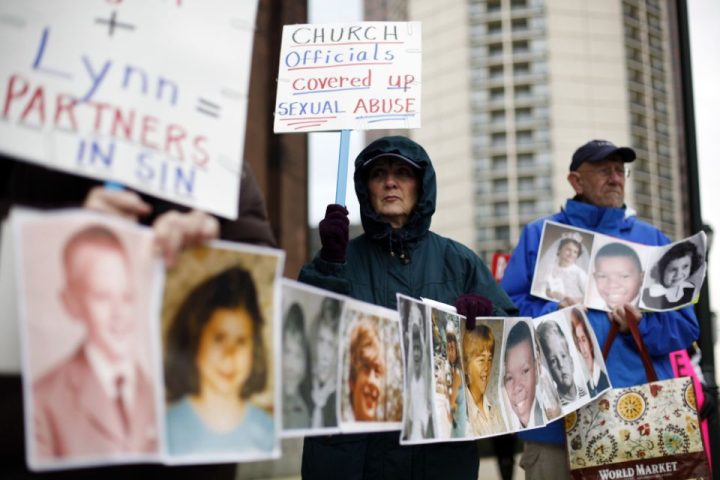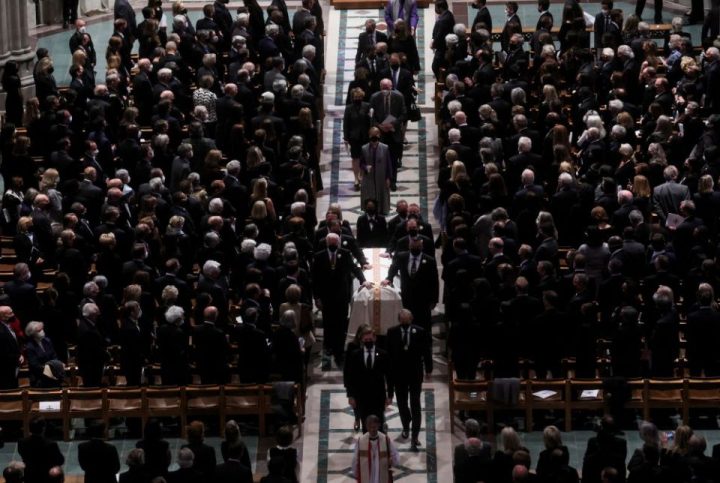
The Supreme Court on June 28 overturned a legal doctrine known as Chevron deference, reducing the regulatory power of federal agencies — some of which have been criticized for issuing rules that have created religious freedom conundrums for Catholic entities.
Under the terms of the so-called Chevron deference — a product of the Supreme Court’s 1984 opinion in Chevron v. Natural Resources Defense Council, which upheld an Environmental Protection Agency regulation — if Congress has not directly addressed a particular matter in a law, courts must give « reasonable » deference to a federal agency’s interpretation of law in their implementation.
Administrative agencies use experts to interpret and carry out federal laws, with broad policy implications on environmental, health care or even religious liberty fronts. The Chevron deference gave those agencies some leeway to do so, which is sometimes seen in how different presidential administrations issue differing regulations based on the same laws.
In joining 6-3 and 6-2 decisions, with Justice Kentaji Brown Jackson recused from one case, the court found the Administrative Procedure Act requires courts « to exercise their independent judgment » about ambiguous statutes and not simply defer to a federal agency.
The two cases — Loper Bright Enterprises v. Raimondo and Relentless, Inc. v. Department of Commerce — were heard the same day by the high court. Both cases were sparked by fisheries that objected to a National Marine Fisheries Service regulation requiring them to not only carry but pay observers on their vessels there to collect data to prevent overfishing.
« Chevron is overruled, » Chief Justice John Roberts wrote for the majority. « Courts must exercise their independent judgment in deciding whether an agency has acted within its statutory authority, as the (Administrative Procedure Act) requires. »
« Careful attention to the judgment of the Executive Branch may help inform that inquiry. And when a particular statute delegates authority to an agency consistent with constitutional limits, courts must respect the delegation, while ensuring that the agency acts within it, » Roberts added. « But courts need not and under the APA may not defer to an agency interpretation of the law simply because a statute is ambiguous. »
In her dissent, Justice Elena Kagan wrote that « it is impossible to pretend that today’s decision is a one-off, in either its treatment of agencies or its treatment of precedent. »
« As to the first, this very Term presents yet another example of the Court’s resolve to roll back agency authority, despite congressional direction to the contrary, » she added.
Critics of the Chevron doctrine argued it expands the power of the administrative state, while supporters argued that in many cases, the agencies may have greater firsthand knowledge of a particular issue than lawmakers in Congress, or are confronted with circumstances Congress did not consider in law.
In a statement, Sen. Chuck Grassley, R-Iowa, praised the ruling, arguing it « restores appropriate balance to our nation’s system of checks and balances. »
« The Supreme Court has made clear that we are a nation governed by the rule of law, not by bureaucratic regulators, » he said. « Congress will now be under extreme pressure to be more specific when writing legislation, so that a bill’s plain text can be clearly interpreted by the courts and federal agencies when legislation becomes law. This decision brings enhanced accountability to Congress and the executive branch. »
Senate Majority Leader Chuck Schumer, D-N.Y., however, argued, « In overruling Chevron, the Trump MAGA Supreme Court has once again sided with powerful special interests and giant corporations against the middle class and American families. »
« Their headlong rush to overturn 40 years of precedent and impose their own radical views is appalling, » Schumer said in a statement. « Democrats will fight to make sure the administration can best deliver on the legislation we’ve passed to help Americans, and we will fight to rein in the outrageous abuses of this brazen Court. »
But federal agencies regulation-making under Chevron up to now has also embroiled the federal government in major disputes with the Catholic Church and Catholic entities.
In an op-ed published June 28 with OSV News, two U.S. Conference of Catholic Bishops’ chairmen, Bishop Robert Barron of Winona-Rochester, Minnesota, chair of the Committee on Laity, Marriage, Family Life and Youth, and Bishop Kevin Rhoades of Fort Wayne-South Bend, Indiana, chair of the Committee for Religious Liberty, accused federal agencies of « working methodically to promote gender ideology at the expense of the rights of people of faith. » While not addressing the Chevron doctrine or the court’s decision, the bishops said federal regulatory agencies’ « steady march became a sprint » recently, issuing in April and May « eight separate rules enshrining gender ideology in law. »
« This regulatory regime harms the common good and undermines the church’s good works in service of the human person, » they said, noting the ideological worldview behind the agencies’ rule-making « threaten the viability of Catholic institutions, such as hospitals, migration and refugee services, and adoption and foster care agencies. »
Becket, the religious liberty law firm representing the Little Sisters of the Poor in their ongoing legal efforts over their objections to paying for abortifacient drugs, sterilizations and contraceptives in their employee health plans, filed a friend-of-the-court brief on behalf of the Little Sisters of the Poor in support of Loper Bright, arguing that the Chevron deference can impact First Amendment rights.
« This a landmark ruling for groups like the Little Sisters of the Poor, who were faced with crippling fines after an agency conjured a contraceptive mandate out of thin air, » Eric Rassbach, vice president and senior counsel at Becket said in a statement provided to OSV News.
« This decision is likely the death knell for some new federal rules, especially the one that took a law about protecting pregnant women in the workplace and turned it into a federal mandate, forcing churches to support employee abortions, » Rassbach said, referring to a case in which the USCCB is also a plaintiff. « The law’s own sponsors said it had nothing to do with abortions, but that didn’t stop federal bureaucrats from hijacking the law to impose an abortion mandate after the law was passed. »



